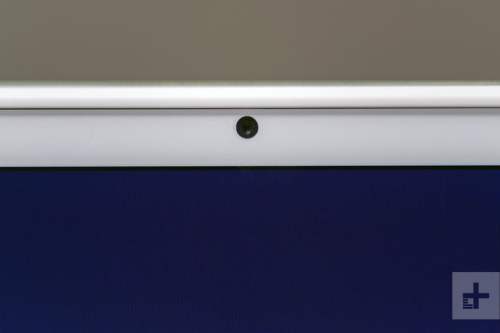
I have been complaining about the size of laptop bezels for years. Ever since Dell kicked off the trend in 2015 with the redesigned XPS 13, I’ve been pushing for smaller and smaller bezels in laptops to match what phone manufacturers have accomplished.
In that period of time, the iPhone went from having a home button on a large bottom chin to almost no bottom bezel whatsoever. I’ve been wanting laptops to take that same cutting-edge approach.
But then 2020 hit, and priorities and usage habits were flipped on their heads. Looking back, the push for ultra-thin bezels may have been a mistake.
Design compromises
Let’s start with why this whole began in the first place. Why desire thin bezels in the first place, you ask? The obvious answer is the look. Thinner bezels just feel futuristic. They remove the distractions and put the contents of the screen at the forefront. But let’s be honest, putting thinner bezels on your products is mostly about following trends. No one wants to look outdated.
But as with all things in technology and design, there’s a compromise behind every small decision. And when it comes to shrinking bezels, the webcam was always going to be the sacrifice. Some laptops tried moving the camera to some bizarre locations, such as under a key or in the bottom bezel.
In practice, most of us didn’t mind so much. It certainly didn’t stop me from crowning it the best laptop you could buy at the time. Sure, the nose cam was obnoxious. But most people would use it so infrequently, it wasn’t a dealbreaker. And eventually, laptop manufacturers did actually find ways to shrink the camera module and stuff it into the smallest top bezel possible.
But again, there was a compromise. These smaller camera modules required a smaller sensor, which struggled even more with low-light scenarios. The result is a webcam that’s basically for emergencies only. Not something you want to force your coworkers or family members to suffer through on a daily basis.
And for many of us, that’s exactly the situation we find ourselves in today. Zoom or Teams calls all day long. Many people who’d never turned on their webcam found out just how bad the quality really was. And that’s when the regret over bezel size hits you.
Laptop webcams suck
Before 2021, it was near impossible to find a laptop with a 1080p webcam. 720p was the standard, and compared to the rest of the devices we all own, that was just sad. In the past few months, laptop manufacturers have started to pivot towards 1080p webcams, such as in new laptops from MSI and Lenovo. It didn’t come as quickly as I’d hoped, but I celebrated some 1080p options nonetheless.
As these companies have said over and over again, the higher resolution would mean a larger camera module. And with that larger camera came a thicker top bezel. Unlike phones and tablets, there just isn’t very much space in the thickness of a laptop lid behind the screen. Hence, the need for a big bezel. It’s not a flattering look, but in 2021, it’s a trade-off most people would likely prefer. That’s the opposite of what I would have said just over a year ago.
Don’t get me wrong. When I see thin bezels on a laptop, it still gives me a happy feeling inside. That’s especially true now in the bottom or side bezels.
But these days, a slim top bezel makes me less reticent to recommend a laptop today than a thicker bezel with a better webcam. The average laptop user shouldn’t need to buy a separate external webcam just to get their basic work done. Until a larger innovation around cameras and bezels come around, thick bezels just might be the future of laptop design.
Editors' Recommendations
- Why building a custom keyboard is the ultimate design nerd hobby
- The Framework Laptop is fully modular — and it looks incredible